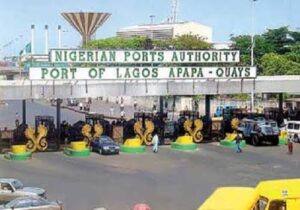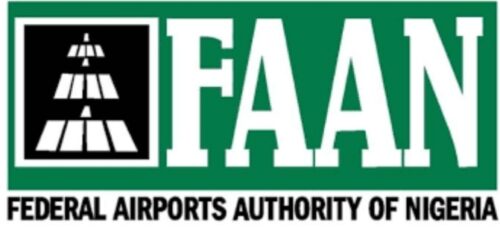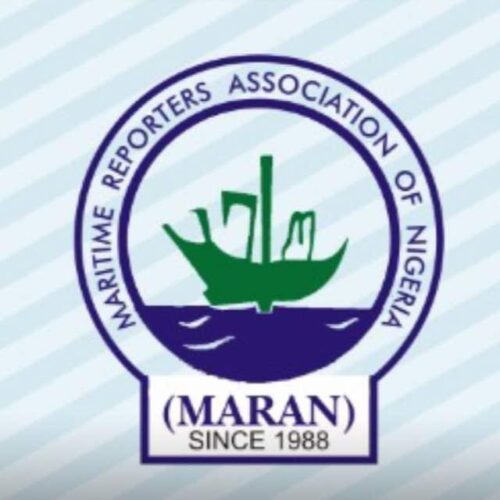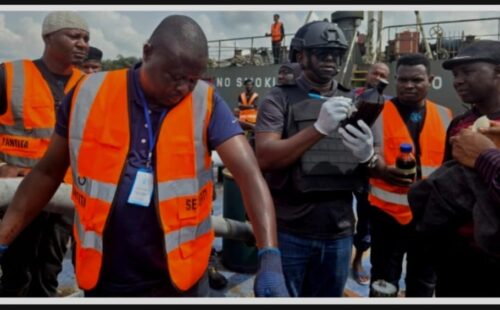No Container Vessel to Call at Nigeria’s Busiest Port till March 1, 2024


As Nigeria faces turbulent trade times with the continuous decline of the naira, an outlook on the Automatic Identification System (AIS) of Nigeria’s nautical space shows that no container vessel is billed to call at Nigeria’s busiest port, Lagos Port Complex, till the end of the month.
An aerial report by Vessel Finder.com shows that of the 19 vessels billed to call at Lagos Port none is a container carrying vessel and only one of the vessels calling at the port is flagged Nigeria.
The only Nigeria flagged vessel, an oil tanker, Royal Treasure, is also the oldest vessel of the 19 to call at the port having been in existence for 45 years.
Nautical Naija notes that crude oil products occupy the largest quota of expected arrivals with 9 crude oil and chemical/oil products tankers, one refrigerated cargo ship, one general cargo ship, one Bitumen vessel, six bulk carriers and one offshore tug vessel.
Part of the report by VesselFinder.com reads: “The current position of ROYAL TREASURE is at West Africa reported three days ago by AIS. The vessel is en route to the port of Lagos, Nigeria sailing at a speed of 0.1 knots and expected to arrive there on February 20, 14:00. The vessel, ROYAL TREASURE (IMO 7910826, MMSI 6571181100) is an oil product tankers built in 1979 (45 years old) and currently sailing under the flag of Nigeria.
On the other hand, the youngest vessel to call at Lagos Port between February 19, 2024 and February 29, 2024, is CMB MATSYS, flagged Panama and built in 2021.
“The current position of CMB MATSYS is at West Africa reported by AIS. The vessel is en route to the port of Lagos, Nigeria. CMB MATSYS is expected to expected to arrive on February 28, 13:00. The CMB MATSYS (IMO 9916226, MMSI 352980770) is a bulk carrier built in 2021 (3 years old) and currently sailing under the flag of Panama.”
As adverse economic realities hit Nigeria’s maritime industry with spiking exchange rates putting a question on traders’ financial endurance alongside heightened living costs, questions arise on Nigeria’s shipping competitiveness and survival in the global maritime scene.







